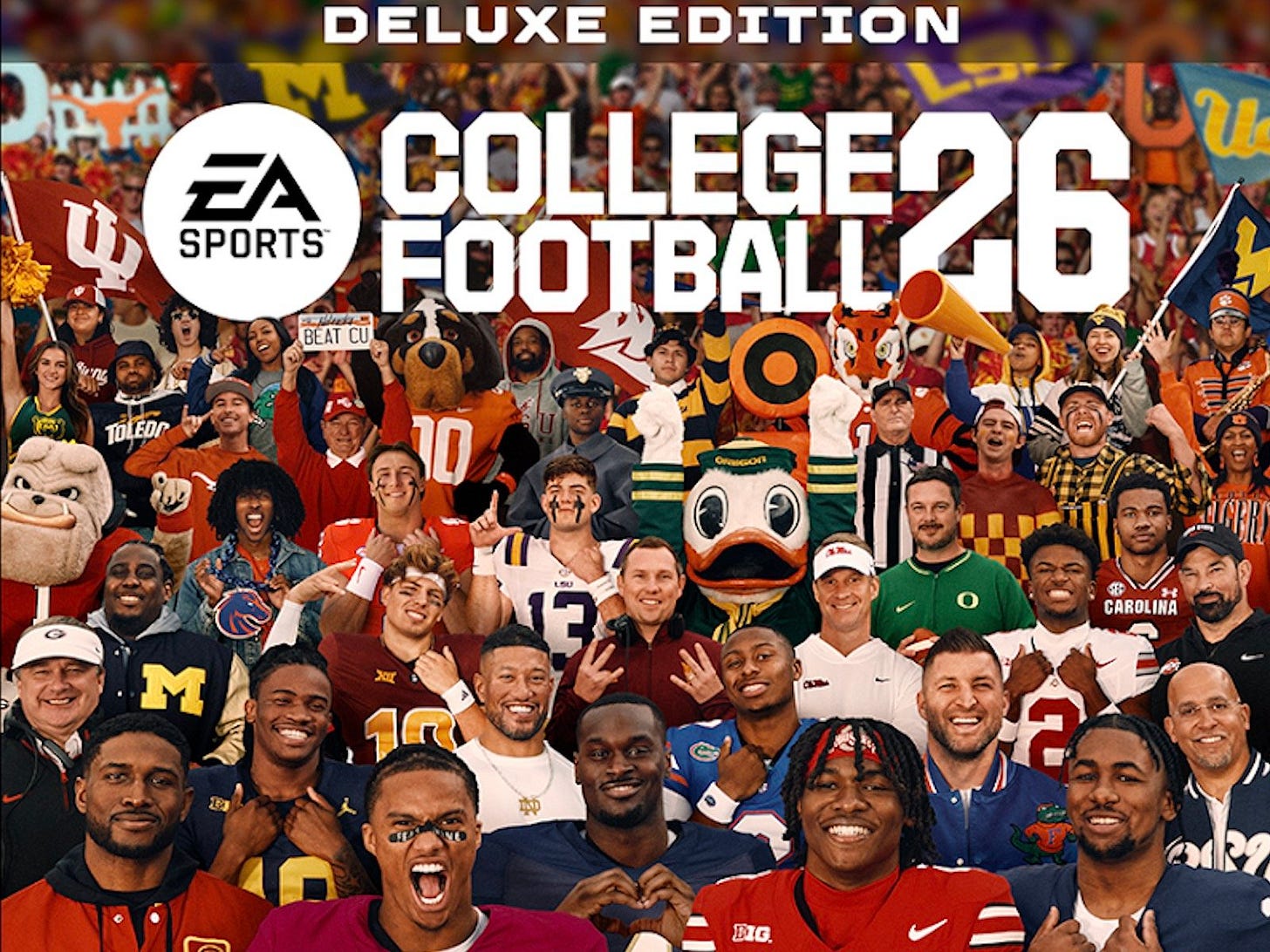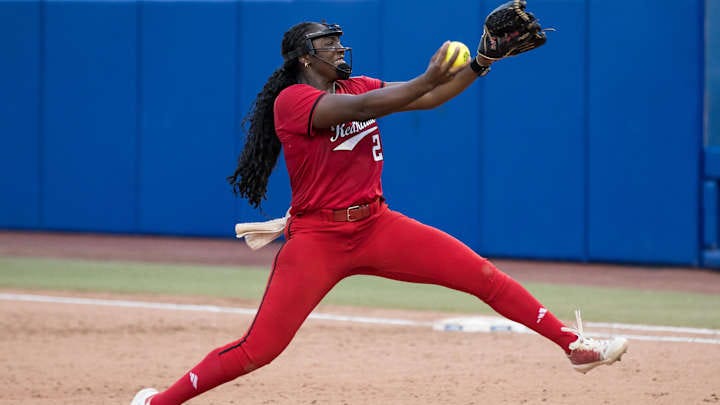The House Settlement is Finally Approved, EA Sports May Have an Impact on the Future of a School's Success, & More | NIL Newsletter #335
Welcome to the NIL Newsletter by Optimum Sports Consulting - providing valuable, actionable NIL resources for athletes, administrators, agencies and other sport professionals.
Keep up to date on all of our newsletters and content by checking out past Optimum Sports Consulting Newsletters and following us on Twitter!
This Monday Newsletter Includes:
1. The House Settlement is Finally Approved
2. EA Sports College Football 26’ Paying Schools Based on Usage
3. Texas Tech Pitcher Signs Another Major Deal
4. Michigan RB Secures Ownership Stake in Latest NIL Deal
5. Legal Updates and What’s Coming Up for NIL
🏆Major News
Judge Wilkens Approves the House Settlement
On June 6, Judge Claudia Wilken granted final approval of the House v. NCAA settlement, cementing a landmark change that allows Division I schools to directly pay athletes starting in fall 2025.
The $2.8 billion deal will distribute retroactive payments to over 14,000 former athletes and opens the door for forward-looking compensation with a revenue-sharing cap of approximately $20.5 million per school per year.
Wilken’s ruling noted that no viable alternatives were proposed by objectors, who raised Title IX and eligibility concerns—issues the judge said are addressable outside the settlement itself.
The agreement also introduces a uniform framework via the forthcoming College Sports Commission and Deloitte-managed NIL Go platform, which will screen all NIL deals over $600 to ensure they meet fair market value standards.
Athletic departments must adapt: schools are allowed to exceed current roster limits by up to 10 “designated athletes,” and scholarship minimums in sports like baseball and softball have been adjusted to preserve participation.
Key implementation dates include the June 11 launch of the NIL Go portal and a June 15 deadline for non-defendant schools to opt into the system, with direct payments commencing July 1 and “designated athlete” rosters finalized by July 6.
EA Sports College Football 26’ Paying Schools Based on Usage
EA Sports has finalized agreements with most Division I FBS programs to include team IP in “College Football 26,” set for release July 19. This is the first time schools will be compensated directly for in-game representation.
EA will pay universities based on their prominence within the game, with factors such as frequency of appearance in gameplay, historical success, and TV draw influencing revenue tiers.
Payments to schools will be separate from the $600 flat rate and potential royalty bonuses already offered to over 11,000 players participating in the game’s NIL program.
This model introduces a new revenue-sharing precedent: schools stand to benefit not just from traditional licensing but from data-based monetization linked to gameplay analytics.
Notably, the College Football Players Association criticized the per-player compensation as insufficient given the scale of EA’s revenue projections, though interest in athlete participation remains strong.
Schools and athletes alike are now closely watching whether this dual-compensation approach becomes standard across future sports titles and broader NIL arrangements.
📌Other Notable Stories to Follow
Texas Tech Pitcher Signs Another Huge Deal – Texas Tech star pitcher NiJaree Canady signs yet another 7-figure deal with The Matador Group, a Texas Tech NIL collective. Canady is set to make at least $1.2 million in her two-year deal. These deals come after Canady led Texas Tech to the Womens College World Series Championship. 🔗 LINK
Michigan RB Justice Haynes Secures Ownership Interest in NIL Deal – The former Alabama running back secured an ownership stake in Loom Juice, leveraging his transfer to Michigan into a unique entrepreneurial opportunity. 🔗 LINK
High School Commit Inks Deal with Adidas – 5-Star LSU commit Tristen Keys becomes the latest high school athlete to sign a NIL deal with Adidas. 🔗 LINK
MOGL Launches NIL Focused Social Media Feed – The new MOGL "NIL Feed" platform allows fans to follow athlete deals, brand partnerships, and personal updates in one centralized space. 🔗 LINK
Livvy Dunne Still Signing Deals – Former LSU gymnast and NIL leader signed a new partnership with Invisalign. Dunne is added to Invisalign’s roster of star-studded athletes. 🔗 LINK
New USC RB Signs NIL Deal with C-4 – USC’s newest athlete from Hudson Community College signs NIL deal with C-4 prior to even suiting up for the Trojans. 🔗 LINK
📅What’s Coming Up Next for NIL
June 11: Kai Johnson v. NCAA preliminary-injunction hearing, Missoula — first Division II-to-I eligibility fight in Ninth Circuit
June 13-22: Men’s College World Series, Omaha (first ABC Saturday slot)
June 15: Universities’ NIL compliance reports for 2024-25 due
July 1: Anticipated effective date for House settlement rules and new Texas NIL law; payroll systems go live
July 1: Florida's new law capping agent commissions at 5% of NIL earnings becomes effective
July 26: EA Sports to release "College Football 26" with increased NIL compensation for players
⚖️Legal Updates
Legal Challenges Emerge Over NIL Arbitration and Clearinghouse
A wave of anticipated lawsuits is targeting the arbitration clause embedded in the newly approved NIL Go clearinghouse system, which is part of the NCAA’s $2.8B House settlement framework. Legal critics argue the clause forces athletes and schools into binding private arbitration, limiting due process and public accountability.
Plaintiffs are expected to challenge whether the arbitration mandate violates constitutional protections or federal statutes, particularly in disputes involving minors, public institutions, and unequal bargaining power.
The Deloitte-managed NIL Go platform, which will screen NIL deals over $600 for fairness, is also facing scrutiny. Opponents claim its structure lacks sufficient independence from NCAA interests, potentially compromising impartiality in resolving disputes or denying athlete transactions.
If successful, these lawsuits could delay or dismantle key pillars of the NIL implementation timeline, including July 1 payments and the July 6 “designated athlete” roster deadlines. The litigation may also set new precedent for how college athlete compensation systems are regulated and adjudicated.
Zakai Zeigler Lawsuit Update
In the most recent hearing on June 6, Judge Katherine Crytzer did not issue a decision on Zeigler’s proposed preliminary injunction.
Judge Crytzer informed the parties that, given that Tennessee Basketball has already begun practicing, she does intend to rule as soon as possible.
During the hearing, Zeigler’s attorney, Alex Little, argued that the NCAA’s eligibility system effectively gives the NCAA control over whether student-athletes can compete in a fifth year, with significant implications for their ability to earn NIL income.
Judge Crytzer pressed both sides on whether the NCAA’s eligibility rules are commercial in nature and how that might affect their treatment under antitrust law.
Zeigler’s lawsuit centers on whether the NCAA’s rules constitute an "unreasonable restraint of trade" under the Sherman Antitrust Act. Little contended that by denying Zeigler an additional year of eligibility and NIL opportunities, the NCAA is causing a direct economic impact.
Little also noted that Zeigler has a guaranteed roster spot at Tennessee but argued that if the injunction were granted, he would be eligible to play at any school, not just Tennessee. He emphasized that the NCAA did not prevent Zeigler from entering the transfer portal.
In response, the NCAA maintained that its rules remained unchanged during Zeigler’s time at Tennessee and that he was aware of the eligibility rules. Judge Crytzer questioned the timing of the lawsuit, filed in May and Zeigler’s team explained that they waited until after the season to better understand his NIL market value for a potential fifth year.
Thanks for Reading!
Keep up to date on all of our newsletters and content by checking out past Optimum Sports Consulting Newsletters and following us on Twitter!









